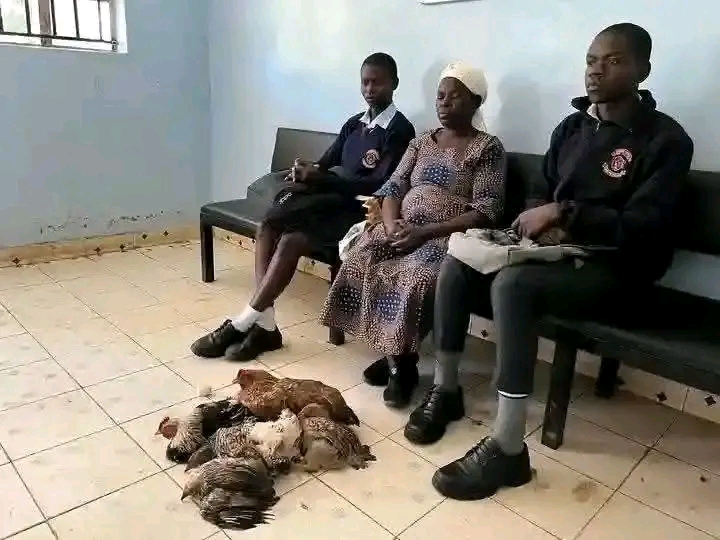
In a heartwarming yet eye-opening incident that highlights the challenges many families face in accessing education, a grandmother reportedly brought six live chickens to a school as a substitute for tuition fees. This happened after her granddaughter was sent home for not having paid the required school fees.
The story has touched many hearts online and reignited discussions about the affordability and accessibility of education, especially in rural and low-income communities.

According to local reports, the young girl had been attending school regularly until she was sent home for failing to pay the required fees. With limited financial resources and an unwavering determination to ensure her granddaughter continued her education, the elderly woman decided to offer what she had—six live chickens—as payment.
This unconventional form of payment was not only a testament to the grandmother’s commitment but also a reflection of the socioeconomic struggles that many families endure. In many parts of the world, especially in rural areas, families often rely on farming and livestock for survival. Cash flow can be sporadic, and in such instances, barter becomes a practical alternative.
The school’s initial reaction to the payment was not immediately reported, but the story quickly went viral on social media. Many people expressed admiration for the grandmother’s efforts and were moved by her dedication. Others raised concerns about the systemic issues that force families into such desperate measures to secure education for their children.

Education advocates have used the incident to highlight the need for policy reforms and more support for vulnerable families. They argue that no child should be denied access to education because of financial difficulties, and that alternative support systems must be put in place to prevent such occurrences.
The story also spurred discussions around community involvement and the importance of supporting local schools in ways that go beyond monetary contributions. Some suggested that schools in underprivileged areas should consider accepting alternative forms of value, such as food or livestock, especially when families are unable to pay in cash.
This touching gesture by the grandmother serves as a powerful reminder of the value placed on education, even in the most challenging of circumstances. It also underscores the resilience of caregivers who, despite economic hardships, are willing to go to great lengths to ensure the younger generation has access to opportunities they may have been denied.
In the wake of the viral story, there have been calls for community fundraising efforts to support the school and other families in similar situations. Local leaders and education officials are being urged to take action to ensure that no child is left behind simply because they cannot afford to pay.
Ultimately, this story is not just about six chickens—it is about love, sacrifice, and the fundamental human right to education.




